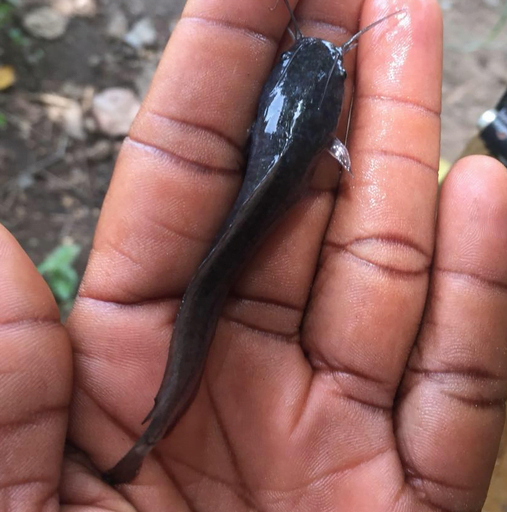Your cart is currently empty!
The Top 3 Reasons Why You Shouldn’t Start a Catfish Farm in Ghana Despite the Hype
Now, You too can farm online and make good profits! You Invest, We Farm, You Profit!
Win-Win
While the hype about Catfish farming in Ghana persist, we bring you the top 3 reasons why you shouldn’t start a catfish farm in Ghana, elaborating the pain points and offering solutions.
Catfish farming has garnered significant attention in recent years due to its potential for profitable returns in the aquaculture industry. Ghana, a country known for its abundant water resources and agricultural potential, has seen an increasing interest in catfish farming.
However, despite the allure, several critical challenges and risks must be considered before diving into this venture. This article delves into the top three reasons why potential catfish farmers should exercise caution and thoroughly assess the feasibility of starting a catfish farm in Ghana.

We’ve written several articles about the challenges of catfish farming in Ghana, the profit and loss nature and the catfish market in Ghana in general, thus in this article, we wouldn’t want to go indepth in that regards, but rather draw your attention to something else altogether.
We are catfish farmers ourselves right here in Ghana, what we write about is from personal experience, not third party experiences, not hear says, just plain facts according to our own history in the business over the last couple of years.
We sincerely believe that the catfish farming profits have been greatly exaggerated in the media, on Youtube and other platforms, and thats okay to some extent, whats not okay, is people diving into it and running into losses.
We are not trying to be gatekeepers, and stop you from making money, in fact, we show a number of ways that you could actually profit from catfish farming, without necessarily over hyping the industry.
We encourage you to read this article to the very end, at which point we would show you at least 3 pain points, in the industry, if you could solve any of them, you could become a millionaire yourself.
Think about it? why compete with other farmers for the meager market share, when you can support farmers across the length and breadth of the country? Remember, in a gold rush? it is those who sell the shovels that make most of the money.
Enough of the small talks, lets dive in!
Reasons Why You Shouldn’t Start a Catfish Farm
Extreme Risks Levels
You may have heard, how profitable it is to grow catfish in Ghana, many blogs continue to parade this narrative, but is that the real situation on grounds?. I sincerely disagree with them, Catfish farming is not as profitable and risk free as many have been led to believe. You wouldn’t become a millionaire over night.
The risks of catfish farming in Ghana comes from factors such as:
- Production Losses: Catfish are carnivorous in nature, if you stock 1000 pieces, several factors come to play to ensure you have exactly 1000 pieces by end of the production. The general guideline is to give a 10% allowance for losses, however, as an inexperienced farmer, you could suffer losses in excess of 40% or even 50%.
Some factors that could lead to this huge losses include but not limited to;
- Over stocking
- Under feeding
- Theft
- and diseases
This isn’t to scare you, but to make you aware of the prevailing challenges.
Under-Developed Market
The catfish market in Ghana is a developing market, unlike other African countries especially Nigeria, the Ghanaian people actually prefer tilapia top catfish. The demand for tilapia is much higher than catfish.
Far more interesting is the fact that the actual demand for catfish in Ghana is in Accra, for the rest of the country, demand is so low that it makes no sense to engage in the business.
Due to this, any catfish farm located further away from the capital usually struggle for market during periods of low demands.
Besides these, there are just about 5 major buyers of catfish in Ghana as at the time of writing this article, most of these are buying to server a very limited number of restaurants termed “point and kills”, this severely limits demand and also competition.
These buyers in turn often quote prices that are often below the actual production cost for the farmer, effectively forcing the farmer into a loss, accounting for the many abandoned ponds across the country.
The other side of the argument has to do with smoking of the fish, unfortunately, many who argue for this, have absolutely no experience whatsoever in this business.
The bare facts remain, that while a kilogram of catfish whole sales currently at 40 cedis, that same kilogram when smoked would sell far less. Smoking catfish properly, can lead to a weight reduction of about 70%, for this reason, wholesale of smoked catfish and sale in Ghana is counter productive.
High Cost of Production
The third but equally most important reason for you to avoid catfish farming in Ghana is the extremely high cost of production. The cost of catfish feed alone can ruin your business.
As we speak prices of catfish feed in Ghana is skyrocketing, over 100 percent in just a year, effectively shutting down some catfish farms in the country.
While alternative sources of catfish feed remains viable alternatives to cut down cost, the continues rising cost of fish feed in the country, pose a potent threat to your profit margins as a farmer, especially in an under-developed market like Ghana.
The Way Forward
Is there no hope? There is hope, I hate to admit, but all the words I have written above though true, makes my stomach churn, but they are words that needs to be said, to give you an unbiased idea of the catfish industry in Ghana, in order for you to make informed decisons.
I understand that many would read all I have written, chuckle and proceed to do the farm anyways, and that is okay, we can save everyone, but those who truly want to make money, knows that true wealth follows solutions, and preferably solutions to problems that many are struggling with.
Why would you want to spend hundreds of thousands of cedis to compete with farmers in an already saturated market? That is a question you have to answer for yourself.
If you are with me till now, lets dive in and see where the real money’s can be made based on experience.
Create a New Market
It is obvious that the catfish market in Ghana is small and not so well developed, however, you could create new markets, here are a few I could talk about.
- Export Market
There is a beautiful graph on Tridge, explaining volumes of catfish exports across the world, we could dabble a bit in this industry, essentially expanding market opportunities for Ghanaian catfish farmers instead of competing with them.
- Frozen Catfish
While the majority of catfish farmers in Ghana are focusing on selling to point and kills who by the way are the essential buyers anyways, why not create and expand the market for frozen catfish? We have frozen salmon etc. in the country why can’t we expand and grow that of catfish?
- Flaked Catfish
We have flaked tuna neatly packed in cans, for sale in Ghana, I used to love that, especially the one that came with some pepper in it, it was awesome, I wonder what that of Catfish would taste like?
Solve Current Catfish Farmers Challenges
- High Cost of Catfish Feed
Many farmers today, are pursuing low cost feeding methods for their catfish farms, experiments on duckweeds, maggots, worms, are being exploited by farmers with varying successes.

Why not take that as a business, grow maggots at large scale and sell to the farmers at a fraction of the cost of commercial feeds?
We could even go a step further, using those same maggots as the protein source in producing high quality but cheaper feeds for the farmers across the country?
The cost of feeding for 10,000 fingerlings of catfish to maturity is enough to set up the equipment’s for a small scale fish feed production facility.
Conclusions
There are many opportunities to make money in the aquaculture industry of Ghana, but you have to be strategic about which areas to invest your hard earned money for utmost rewards.
I recommend; support the farmer, don’t compete with them.
Now, You too can farm online and make good profits! You Invest, We Farm, You Profit!
Win-Win
Comments
6 responses to “The Top 3 Reasons Why You Shouldn’t Start a Catfish Farm in Ghana Despite the Hype”

Nice piece, kudos,more of these insightful write-ups

Welcome Ofosu!

I agree with you 100%.. I start a back yard farm and all this factor has come to play. I start with 500 fingerings and I have less than 200 let for sell and the current price is just 45gh ot 40gh per fish. There is no much market for the fish which is ready to be sold… thank you sir

Welcome wells,
There are ways to deal with this, you can join us and learn

Well noted but in life without risk you can’t make it in life so what is the solution for this 3 problem listed

Leave a Reply